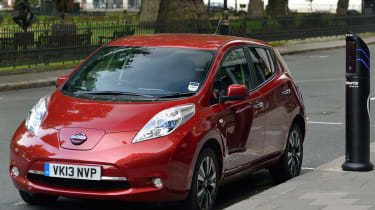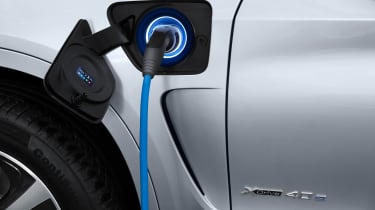UK motorists save £750 a year with a plug-in car
New figures by Go Ultra Low campaign reveal the potential savings from choosing plug-in hybrids or electric vehicles

UK motorists stand to save £750 per year in tax and fuel costs by switching to ultra-low emissions vehicles (ULEVs), a new study by the Go Ultra Low campaign has revealed.
The figures show the average cost to fuel a petrol or diesel car is around 12-pence per mile, while an equivalent cost for ultra-low emissions vehicles (vehicles that emit less than 75g/km of CO2) is just two-pence per mile. Currently all ULEVs are either plug-in hybrids or fully electric cars.
• New VED road tax rules explained
If all UK motorists took advantage of these cost cuts, the overall savings from ULEVs would accumulate to £24.5 billion a year across the nation’s 32.6 million cars.

Hetal Shah, Head of the Go Ultra Low campaign said: “With fuel costs from just two-pence per mile, no road tax, no congestion charge and free parking in many locations, electric cars certainly present a compelling proposition. Put simply: the more you drive, the more you save.”
Costs for ultra-low emissions vehicles are on the up
However, these savings won’t last forever, as RAC spokesman Simon Williams told Auto Express: “While the cost-per-mile benefits of ultra-low emission vehicles are plain to see, the Government is actually reducing or removing many of the financial incentives to encourage their take-up in the first place – which will be frustrating for anyone thinking of buying a new car.”
Auto Express previously highlighted the financial toll the growing uptake of electric vehicles has on revenues lost from the fuel excise duty – an estimated loss of £5 billion per year in 2030.

To account for the growing hole in the government's budget, the revised VED car tax bands from 1 April 2017 onwards will begin to tax all ultra-low emission vehicles, with only zero-emissions vehicles escaping the tax man's wrath.
Ahead of announcing the revised five-year and £200 million plug-in car grant later this year, the government has also altered its categorisation of ultra-low emissions vehicles. A new three-category system replaces the 75g CO2/km cut-off.
- Category 1: CO2 emissions of less than 50g/km and a zero emission range of at least 70 miles
- Category 2: CO2 emissions of less than 50g/km and a zero emission range between 10 and 69 miles
- Category 3: CO2 emissions of 50-75g/km and a zero emission range of at least 20 miles
These new categories are expected to be a cornerstone in the distribution of the new plug-in car grant.
Do you think the Government is doing enough to incentivise motorists to switch to low emissions vehicles? Let us know in the comments section below...
Find a car with the experts


